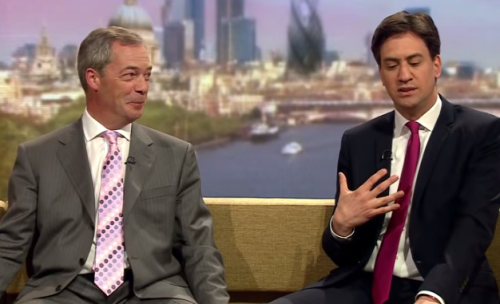
The descent into WWI is a 21st Century story
Sepia-toned silent images of black-coated or feather-hatted diplomats lend a reassuring distance to the events that plunged the world into war a hundred years ago this week. It looks like a world long since vanished and in one sense, it is. However, like much of that story, it is an illusion; all the more dangerous for the complacency that false reassurance breeds.
Far from being a different age, the threats posed by rogue governments, state-sponsored (or at least, state-cloaked) terrorism and extremist violence are more relevant now than at just about any time since 1914.
Indeed, when George W Bush had to respond to the Twin Towers attacks, he was placed in a very similar position to the Austrians after the assassination of Franz Ferdinand.
Both outrages were direct attacks against not just the soil and people of the respective great power but represented a symbolic attack too. Equally, both were carried out by terrorist organisations that enjoyed the tacit patronage of their host governments to the extent that the line dividing them was distinctly porous: they shared objectives and beliefs, and not infrequently, personnel.
Understanding that is crucial to understanding both why the Austrian government sent such a harsh ultimatum, demanding that Serbia allow Austria to conduct its own inquiry. Quite simply, there was no way a Serbian inquiry could be trusted to investigate properly as if it did, it would implicate itself. Refusing the Austrian demand that Sebia cede its sovereignty might have given the Serbs a little cover under international law but as the initial act could easily be regarded as a casus belli of itself, only a little.
Here, the parallel switches to Iraq. Most would now agree that the Iraq War was a monumental blunder on any number of levels. Many thought it would be at the time, though we should distinguish between those who believed in managing the risk Saddam presented and the views of those who would bury their heads in the sand and try to wish the situation away. Bush’s problem, like the Austrians’, was that the weapons inspectors were being given the run around in exactly the same way that Pasic’s Serbian government would have given the Austrians had they allowed them in. Just as Saddam was trying to strike a balance between providing no evidence to the West that he had WMD’s and retaining the belief among his local opponents that he had, so Pasic could not afford to give an outright no to Austria but nor could he allow them to find anything incriminating. Both countries could sustain the contradictory policies only until the terrorism of 1914 and 2001 changed the game. A that point, both the Austrian and American administrations decided that a government that couldn’t be trusted on such matters was by definition a sufficient threat to justify war.
Of course, one principal difference between Serbia in 1914 and either Iraq or Afghanistan this century is that neither of those two had any meaningful international support whereas Serbia could rely on Russia, and by extension, France and probably Britain. That, however, is more a distinction of detail than consequence given the breadth of international sympathy and strength of US feeling in the days following 11 September 2001. Unlike Nicholas II (or more accurately, his ministers), no modern leader is likely to commit to the suicide of their regime and country on behalf of a bunch of fanatics (not that the tsar meant to either, but foresight of the consequences of a major war is clearer now than then).
Where do these lessons leave policy today? That’s a much more difficult question. It’s worth noting that after all the slaughter, it was the Serb nationalists who achieved their aim in 1918-9, not the Austrians; that after years of occupation, Afghanistan is by no means free of extremists even if Al Qaida is much reduced; that the downfall of Saddam has merely replaced one uncertainty with others in the Middle East; that Israel’s policy towards Hamas veers between scratching the sore and sticking a plaster on it but that the sore remains all the same.
Even so, it’s only when the fanaticism of terrorists is allied with the resources and prerogatives of a state that there develops a really serious threat. The ideal solution is to prevent that alliance in the first place but even that asks difficult questions about external interference in sovereign states, ones that can only really be answered if there’s agreement on both principles and practices among the major powers. If that fails, it follows that regime change should be a legitimate reason for military action in certain circumstance, even before a threat is made real. Yet that too is dangerous: many initially extreme governments mellow with power, while war brings the chaos and pain in which extremism thrives.
It’s said that those who fail to learn the lessons of history are doomed to repeat it. The problem is knowing which lessons to learn and heed.
David Herdson
David will not be able to respond to comments today as he’s getting married.


